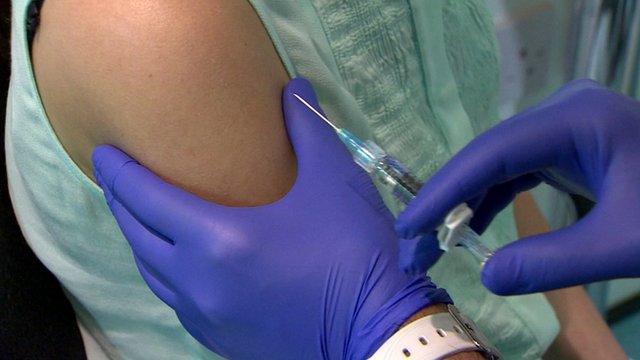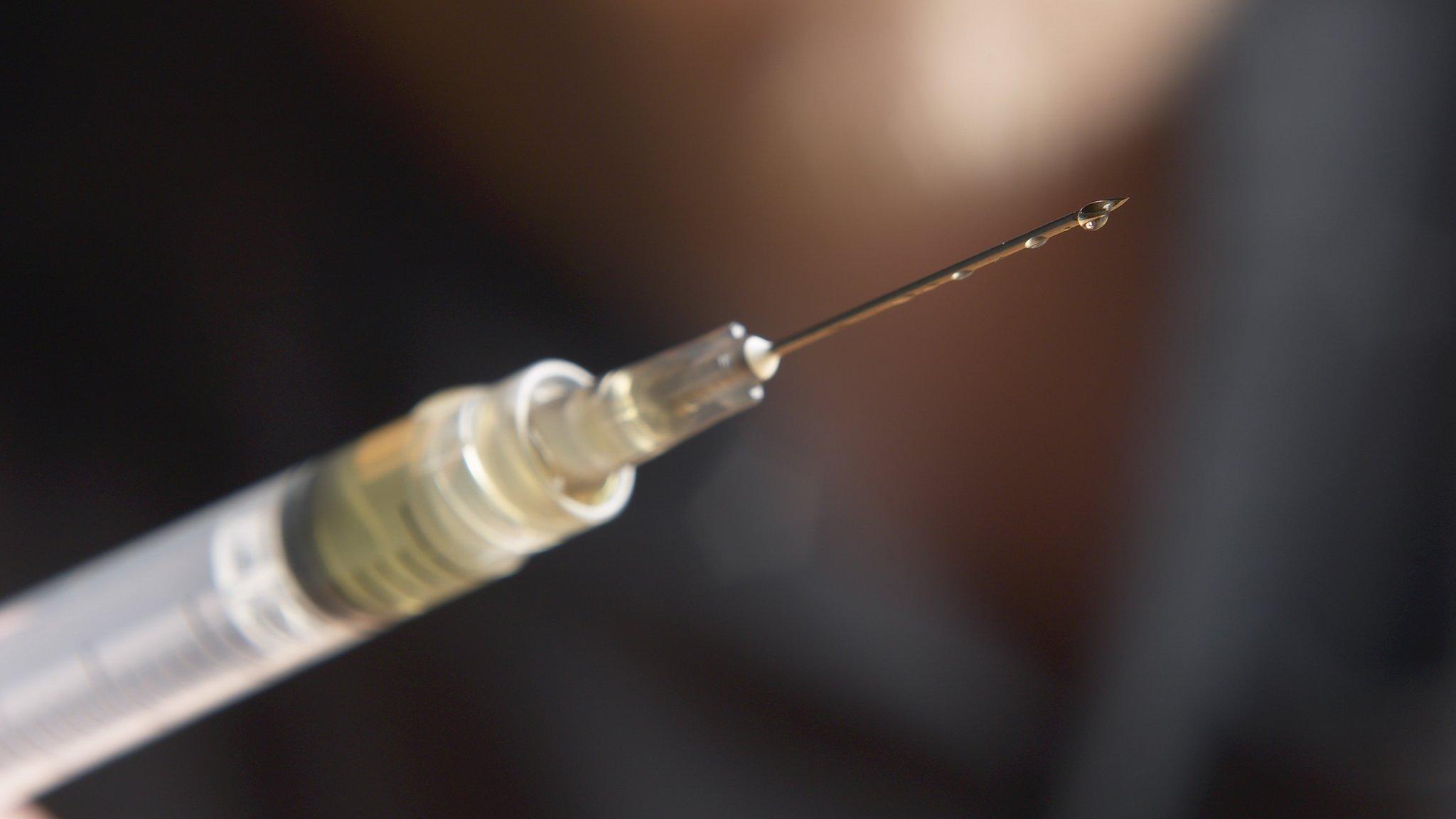Meningitis W: Students urged to get vaccine
- Published

Young people starting university or college this autumn are being urged to get a vaccine against meningitis.
Public Health England says the jab will help protect against meningitis W in particular - a sometimes deadly strain that is on the rise.
Officials say new students are at risk as they often mix closely with groups of unfamiliar people - some who may unknowingly carry the bug.
Wales has also renewed calls for school-leavers to take up the jab.
The injection - known as the Men ACWY vaccine - was first introduced for new university students in the UK last year.
'Highly aggressive'
It protects against the A, C, Y and W strains of the disease - all forms that can cause death or disability.
But health experts say they are particularly concerned about "a highly aggressive strain" of meningitis W bacteria.
Some 22 people got meningitis W in 2009 in England, compared with almost 200 people in the last 12 months.
Meningitis W infection is fatal in one in 10 cases and can lead to long-term health problems including deafness, epilepsy and amputations.

'Horrific side-effects'

Amy spent three weeks in intensive care with Meningitis W
Amy Davis, 24, from Surrey, got meningitis W when she was 18 years old, a few months before she was due to start college.
She said: "At first I thought I had the flu and felt very tired. But by the next day, I was covered in a rash, felt extremely unwell and was rushed to hospital.
"I spent three weeks in intensive care on life-support. My organs failed, and my family was told I was the most unwell person in the hospital."
The infection spread to her bloodstream and bones and damaged her feet. She had toes on both feet amputated, and later her left leg was also amputated.
She added: "The jab was not available when I was 18. I would encourage everyone to get the vaccine who can.
"It takes just five minutes, and is just one injection that can save your life or save you from getting horrific side-effects."

GPs in England are inviting 17 and 18-year-olds to come for a vaccine. First-time students under the age of 25 are eligible too.
People who missed out on the jab last year should also see their doctor, experts say.
'Save lives'
And though students are the focus of the campaign, other young people are strongly advised to get the jab - whether they are planning on attending university or college or not.
Dr Mary Ramsay, at Public Health England, said students needed to remain vigilant to signs of the disease.
She added: "Protecting young people from this potentially deadly disease as they embark upon one of the most important periods of their lives is vitally important.
"The vaccination will save lives and prevent lifelong devastating disability."


Meningitis
Meningitis is an infection of the meninges - the membranes that surround the brain and spinal cord
Meningococcal bacteria are common and carried harmlessly in the nose or throat by about one in 10 people
They are passed on through close contact
Symptoms can include a fever, tiredness, and general aches at first. These can get rapidly worse, with agitation, confusion, vomiting and headaches
People should seek help as soon as possible and should not wait for a rash to appear before getting advice

Vinny Smith, of the Meningitis Research Foundation, said: "By getting this free meningitis vaccine students are not only protecting themselves from a potentially deadly disease, but also protecting others by stopping the spread.
"It is also vital to watch out for friends if they are unwell. If they have meningitis it can be like a very bad hangover that quickly gets worse. It can be deadly so it is important to act fast and get medical help."
Meanwhile Liz Brown, at the charity Meningitis Now, said people must not get complacent about the threat of meningitis.
She added: "Up to a quarter of students carry the bacteria that can cause meningitis compared to one in 10 of the general population.
"In the UK, every university could experience at least one case of meningitis amongst its students within the first term."
Since 2015 the vaccine has also been rolled out for younger teenagers at schools across the UK.
The ultimate aim is to ensure teenagers are offered the vaccine before they leave school.
In the meantime officials in Scotland and Wales say any school-leavers who have not had the vaccine should speak to their doctor.
- Published1 August 2015

- Published1 August 2015

- Published13 March 2015
